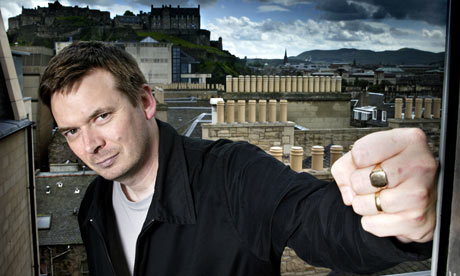
OK, here's a question: can you think of any novels about theatre that are any good? As a theatre critic, I already spend an unhealthy amount of time watching, writing and chatting about theatre. I also do a fair bit of reading about theatre, albeit at the factual/theoretical end of things, in both blogs and books. What I don't get to do so often is read novels about theatre. Is this because I haven't found them, or because there aren't any?
From what little I have found, novels set in or around the theatre seem to fall into three distinct categories: great, dreadful and utterly unexpected. Proudly waving a flag for the utterly unexpected category are Daily Telegraph theatre critic Charles Spencer's trio of Will Benson crime novels, which detail the adventures of a balding, middle-aged theatre critic, who also happens to solve crimes (any resemblance to Telegraph theatre critics is, of course, purely coincidental). I've read two, and as crime novels go they're not half bad. Moreover, as you'd expect, their take on theatre is informed: I can't think of many other murder mysteries in which the protagonist takes time out from his sleuthing to complain bitterly about the plays of Howard Barker.
Sticking with crime fiction, let's consider Ian Rankin's Inspector Rebus novels, which are occasionally set against the backdrop of the Edinburgh festival. In contrast with Benson's insider position, Rebus offers us what I imagine to be a fairly typical Edinburgher view of theatre during August, as a mass of naive, well-meaning middle-class English tossers descends on the city. Into this category, we might also slot the first chapter of Irvine Welsh's Trainspotting, in which Renton and Sick Boy casually mug a Fringe punter.
In the great category, two other sort-of-about-theatre novels I've read also feature the Edinburgh festival: Michael Arditti's Unity and Alastair Gray's 1982, Janine. The theatre described in the books is totally recognisable: unglamorous, experimental, student-level Fringe productions. In both novels, admittedly, the theatre bits are just a springboard to other events, but both demonstrate a real affection for stagecraft and the reasons people get passionate about theatremaking.
In the final category, dreadful, we have bad novels using theatreland as a backdrop. The worst examples I can think of are Toby Litt's Corpsing and Stephanie Merritt's Real. In fairness, I only got halfway through the latter before I couldn't bring myself to read another word. Corpsing, on the other hand, is a page-turner, but squeezes every known cliche about actors into its plot, and the bits about acting really aren't that great.
I admit that most of my reading has been scripts, blogs, journals and the like, so I'm not an expert. There could be hundreds of novels published each year that don't hit my radar. So the question is this: what have I been missing?

